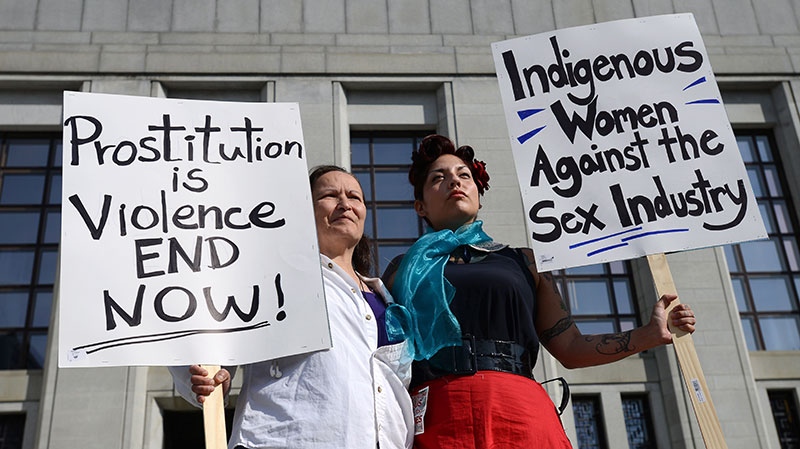The escort industry in Munich is experiencing significant regulatory changes that are set to reshape its operations. These changes are part of a broader effort by the German government to address issues related to sex work, including human trafficking and exploitation.
With the recent conclusion of the UEFA Euro 2024 football tournament, concerns about sex trafficking have come to the forefront, prompting stricter regulations.
This article, written in cooperation with Louisa Escort, one of the best München escort agencies, will explore these new regulations, their implications for escort services in Munich, and the broader context of sex work legislation in Germany.
Background of Sex Work Legislation in Germany
Prostitution has been legal in Germany since 2002, but it was not until 2017 that the Prostitutes Protection Act (ProstSchG) was introduced. This law aimed to improve the working conditions of sex workers by mandating registration, regular health checks, and the use of condoms. Despite these efforts, the law has faced criticism for its implementation challenges and for not sufficiently protecting sex workers from exploitation.
New Regulations for Escort Services

The recent changes to the regulation of escort services in Munich are part of an ongoing effort to refine and enhance the legal framework surrounding sex work. The new rules include:
- Mandatory licensing for escort agencies ─ All escort agencies must now obtain a license to operate legally. This move aims to ensure that agencies comply with health and safety standards and do not exploit their workers.
- Enhanced health and safety requirements ─ Agencies are required to provide safe working conditions, including secure premises and access to health services. Condoms must be used at all times, and regular health checks are mandatory for all workers.
- Increased surveillance and monitoring ─ Authorities will conduct regular inspections of escort agencies to ensure compliance with the new regulations. This includes monitoring financial transactions and working conditions.
- Data protection measures ─ While registration of sex workers is still required, new measures have been introduced to protect their personal data from unauthorized access and misuse.
Implications of the New Regulations
These regulatory changes are expected to have several impacts on the escort industry in Munich:
- Increased operational costs ─ Agencies will face higher costs due to licensing fees, compliance with health and safety standards, and regular inspections. This might lead to higher prices for clients and possibly reduced earnings for workers.
- Greater legal protection for workers ─ The new regulations aim to provide better protection for sex workers, reducing the risk of exploitation and abuse. However, there are concerns that the mandatory registration and data-sharing requirements could compromise workers’ privacy and safety.
- Potential for increased underground activity ─ Stricter regulations may push some escort services to operate illegally to avoid the costs and scrutiny associated with compliance. This could make it more challenging for authorities to monitor and protect sex workers effectively.
Challenges and Criticisms

Despite the intended benefits, the new regulations have faced several criticisms:
- Invasive registration requirements ─ Sex workers must provide detailed personal information during registration, which many find invasive and fear could lead to stigmatization and discrimination.
- Insufficient support services ─ Critics argue that the regulations focus too much on control and not enough on providing support services for sex workers, such as exit programs for those wishing to leave the industry.
- Implementation difficulties ─ The practical challenges of implementing and enforcing the new regulations, especially given the diverse and often hidden nature of the sex industry, remain significant.
Addressing Human Trafficking Concerns
One of the primary motivations behind the regulatory changes is to combat human trafficking. Major sporting events like the recently concluded UEFA Euro 2024 have historically raised concerns about a potential increase in trafficking and exploitation.
German authorities are keen to avoid a repeat of the 2006 World Cup, where fears of mass trafficking were highly publicized but largely unfounded.
The new regulations aim to create a safer and more transparent environment for sex workers, making it harder for traffickers to operate. Enhanced surveillance and mandatory health checks are expected to help identify and support victims of trafficking more effectively.
Perspectives from the Industry

Many within the industry have mixed feelings about the new regulations. While some welcome the increased protections and legitimacy, others worry about the impact on their privacy and the potential for increased underground activity. Outreach organizations stress the need for a balanced approach that prioritizes the well-being and autonomy of sex workers.
Conclusion
The recent regulatory changes affecting Munich escort services represent a significant shift in Germany’s approach to managing its sex industry. While these changes aim to enhance protection and reduce exploitation, they also bring challenges related to implementation, privacy, and potential underground activity.
In addressing these changes, it is crucial to balance regulatory control with the rights and autonomy of sex workers, ensuring that they are protected, respected, and supported in their work.



